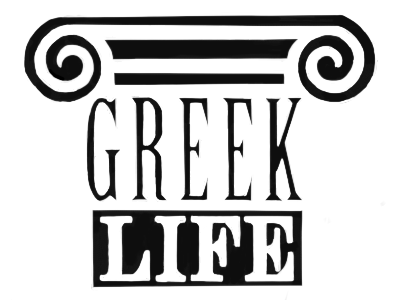Athletes in Sororities
October 12, 2018
As many Whitman students know, it is easy to become involved in extracurricular activities on campus. Almost every Whittie has their “thing” — or perhaps many “things”— that define them and determines how they stay connected to others outside of classes.
Varsity athletes make up over 20 percent of the student population at Whitman, with many more students choosing to become involved in club and intramural sports too. Greek life is a journey many choose to embark on as well, as Whitman has four sororities and four fraternities.
As many Whitman athletes know, it is not an easy task trying to combine being a varsity athlete with being a Whitman student, let alone trying to find time for extra activities off the court and the outside of the classroom. There just isn’t enough time in the day. But some athletes have found a way to not make their athletic teams their only teams.
Junior Katie Stahl, sophomore Sonja Fauske and junior Natalie Whitesel are varsity athletes that compete for Whitman’s women’s basketball and volleyball teams. They are also active members of the Delta Gamma (DG) and Kappa sororities, and being a part of two different “teams” has provided each of them a broader, unique experience.
Katie Stahl is a biology major on the women’s basketball team. What Stahl likes most about being in DG is the family it has given her besides her basketball teammates.
“I joined a sorority to be a part of another community outside of the athletic community here on campus,” Stahl said. “When you’re an athlete, you automatically have a wonderful support system and group of friends within your team, but for me it began to feel like my only identity was being an athlete.”
Sonja Fauske is on the volleyball team and also a member of DG. Fauske also enjoys being part of two groups on campus, as well as getting to share different experiences with her sorority sisters.
“It is the coolest thing to be in a blend of people who are involved with so many other things on campus, while our sorority is what connects us,” Fauske shared. “I get to learn about all of their opportunities and get to share mine with them as well.”
Natalie Whitesel is a politics-environmental studies major who plays basketball for the Blues as well. Similar to Fauske, Whitesel appreciates the multitude of people and backgrounds that make up her sorority, Kappa.
“Being in a sorority gives me the opportunity to learn and grow because of how many different people and perspectives are represented in the group,” Whitesel said. “Kappa helps me learn and grow outside of athletics, which is something new to me.”
Being a varsity athlete — as these three women are well aware of — requires an enormous amount of dedication, drive and commitment to the team and the game. Additionally, time is a factor that sometimes flies under the radar. Varsity practices typically last two to three hours a day, not including the many extra hours each athlete puts in to develop their own individual game.
Missing class for away games and tournaments every other week. Late nights full of homework that couldn’t be started during the day due to long, tiring training sessions. These women know the grind that makes up being a Whitman student-athlete, and attribute much of their success to the support they receive from their sororities.
Being a varsity athlete — as these three women are well aware of — requires an enormous amount of dedication, drive, and commitment to the team and the game. Additionally, time is a factor that sometimes flies under the radar. Varsity practices typically last two to three hours a day, not including the many extra hours each athlete puts in to develop their own individual game.
Missing class for away games and tournaments every other week. Late nights full of homework that couldn’t be started during the day due to long, tiring training sessions. These women know the grind that makes up being a Whitman student-athlete, and attribute much of their success to the support they receive from their sororities.





